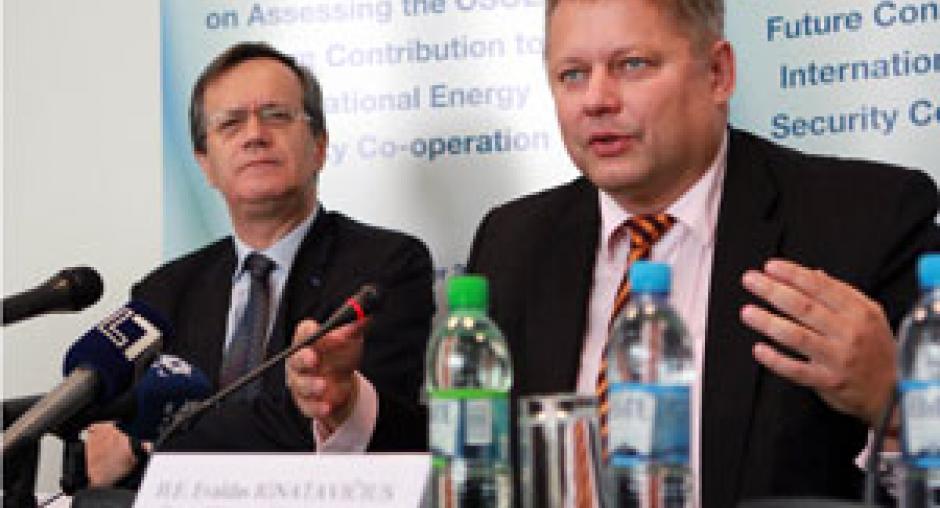OSCE energy security meeting opens in Vilnius with call for new approaches for co-operation

VILNIUS, 13 September 2010 - An expert meeting on energy security challenges in the OSCE area and developing the Organization's role as a platform to promote co-operation started in Vilnius today.
The two-day meeting is organized by Kazakhstan's OSCE Chairmanship, the incoming Lithuanian Chairmanship for 2011 and the Office of the Co-ordinator of OSCE Economic and Environmental Activities.
"Kazakhstan recognizes the importance of ensuring energy security in the OSCE area as a component of the comprehensive concept of security. Consistent and sustainable development of the economies of the OSCE participating States depends on the stability and steadiness of the energy supply," said Akan Rakhmetullin, Deputy Permanent Representative of Kazakhstan to the OSCE, at the opening the meeting.
More than 200 representatives from the OSCE participating States and Partners for Co-operation, international organizations, business and academia will discuss the OSCE's role in promoting energy security co-operation. The OSCE is the world's largest regional security organization with 56 participating States, including among them key energy producers, consumers and transit countries.
Lithuanian Deputy Foreign Minister Evaldas Ignatavicius said: "The key factors for our future common action are supply diversification, energy sources diversity, development of energy infrastructure, fair competition and more effective use of current recourses promoting low carbon energy. Therefore, both international co-operation and domestic activities are considered of equal importance."
OSCE Secretary General Marc Perrin de Brichambaut underscored the interdependence that characterizes the international energy security, and urged meeting participants to use the opportunity to increase co-operation among all actors in the energy equation.
"The OSCE can be useful in raising awareness of problems and exploring new approaches for co-operation among participating States, also taking into account the contribution of civil society. The OSCE can act as a clearing house for expert advice and discussions and for facilitating an inclusive political debate," he said.
"Choices that are made today on development, transportation and transit will have consequences for decades to come, by structuring economic and political relationships between countries of the OSCE region and beyond. These choices must be made on solid foundations and in ways that strengthen development and co-operation."
The Secretary General will present a report to the 56 OSCE participating States based on the outcomes and recommendations of the meeting in Vilnius.
